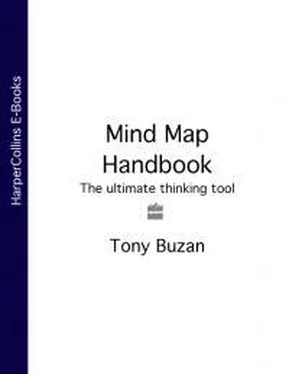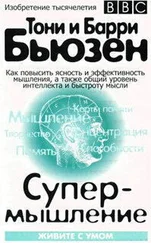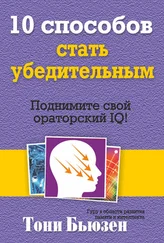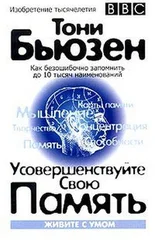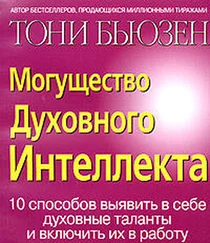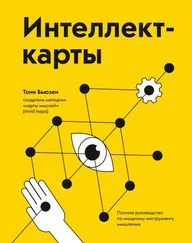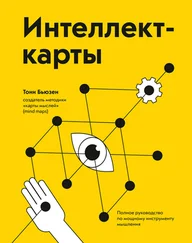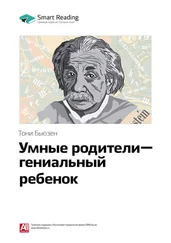PODIATRIST ( pód -ia-trist)
(a) Doctor who provides care for pregnant women
(b) Doctor who specializes in the treatment of very young children
(c) Doctor who treats minor ailments of the foot
(d) Nutritional advisor
PAEDIATRICIAN (pee-dia- trí -shun)
(a) Doctor who provides care for pregnant women
(b) Doctor who specializes in the treatment of very young children
(c) Doctor who treats minor ailments of the foot
(d) Nutritional advisor
OBSTETRICIAN (obste- trí -shun)
(a) Doctor who provides care for pregnant women
(b) Doctor who specializes in the treatment of very young children
(c) Doctor who treats minor ailments of the foot
(d) Nutritional advisor
2.10
Using Your Verbal Intelligence to Increase Your Other Multiple Intelligences
‘Knowledge is power only if it is well organized.’
Tony Buzan
Back in Chapter 2.1 we learned how our Multiple Intelligences all interact together in synergy. In this chapter we will look briefly at how your massive, and growing Verbal IQ (which is probably now the strongest and most powerful it has ever been in your life) can interweave with just five of these Multiple Intelligences, to the mutual benefit of each!
Verbal IQ and Creative Intelligence
Your Creative Intelligence involves your ability to use your imagination, to make multi-sensory pictures in your mind, to make new and original associations, and to do all this at speed.
Given what you have just learned in The Power of Verbal Intelligence, the links between the two are obvious, and by strengthening your Verbal Intelligence you automatically strengthen your imagination, your ability to make new and original associations, and to make multi-sensory pictures in your mind!
And vice versa! Therefore use your imagination ! When in conversation, when writing, or when making any form of presentation, think about what you are going to say and, very specifically, focus on imagining what you are going to say.
For example, if you are describing a meal, infuse it with your imagination. Imagine every molecule of taste and smell; wrap your senses of taste and touch around the texture and delectable flavours of what you are describing; immerse yourself in the wonderful aromas …
When you do this, you will fire your body with more energy, naturally giving your voice more power, variation, intensity and meaning, and your words an added lustre, beauty and power. Humour is also a big part of creativity – comedians the world over have proven that the blend of imagination, new and witty associations and words, captivates everyone.
Next time you listen to any comedians, analyse their Verbal Intelligence – you will find it is extremely high: their Creative Intelligence will be too!
Mimic them! As you develop your ability to imagine and make witty new associations, you will be expanding the parameters and power of your Verbal IQ. You will also be enjoying yourself a lot more and gathering many new friends.
Verbal IQ and Numerical Intelligence
Case Study – Word Power = Number Power
What is the relationship between learning mathematics and language skills? A significant one, according to the research of Dr Elizabeth Spelke and Sanna Tsibkin, of the Massachusetts Institute of Technology in Boston.
They studied eight adults who spoke Russian as their native language and who were also fluent in English. To mimic the learning processes of children as they learn mathematics, the researchers taught the subjects both detailed and complex arithmetic, and unfamiliar approximations. To check the relationship between language skills and maths learning, some exercises were taught only in English, the others only in Russian. To make the experiment experiment even more language based, the teachers wrote all numbers out as words rather than standard numbers.
The researchers then tested the students by giving them mathematical problems to solve in both languages. They were asked two kinds of questions: first to make exact calculations (does 75 + 89 = 163 or 164?) and second, to make approximations (is 151 + 95 closer to 240 or 280?)
The result? In the detailed calculation questions, the students took about a second longer to come up with the answer if the questions were not asked in the language in which they had been taught. This showed a direct relationship between language and ability to learn mathematics.
Interestingly, there was no language-dependent time lag when they were asked to make approximations.
As part of the same study Stanislas Deheene, at the French Medical Research Organization Inserm, watched brain scans of people while they were doing mathematical calculations.
Confirming Spelke and Tsibkin’s study, Deheene found that exact calculations increased the activity of speech-related areas of the brain’s left-frontal lobe, while estimates increased activity in both the left-and right-parietal lobes. These regions help control hand and finger movements, and perhaps are involved when we learn to count on our fingers.
Your Numerical Intelligence is your ability to juggle successfully in the playground of numbers. It is often mistakenly thought to be not only opposite but counter to Verbal Intelligence. How often do you hear the statement: ‘I’m good at maths but hopeless at languages’, or ‘I love English but hate maths’? The truth of the matter is that both are closely related and each supports the other:
Both contain basic small alphabets (letters/numbers)
Both combine the elements of their alphabets to form meaningful sub-groups and larger groups (words/sentences; clusters/equations)
Each is a prime constituent of standard IQ tests
Both challenge and stimulate the brain to make associations between their elements
Both inspire your brain to be creative
Both have rules and guidelines for their structures; numerical and syntactical ‘grammars’
Both are natural languages
Both help your brain to refine its processes and to see and think more clearly
Each is strongly associated with success in academic and business life
The findings of the case studies above contradict the oft-heard assumptions that if you are good in languages you’ll be poor in mathematics and vice versa. If you have a well-developed Verbal Intelligence, it demonstrably helps you improve your Numerical Intelligence.
You can use your Numerical Intelligence to boost your Verbal IQ in the following two ways:
Play games and do puzzles that involve exact calculations. These fun and stimulating games increase the activity of the speech-related areas of your brain. As you entertain yourself in this way you will constantly be exercising the physical areas of your brain that deal with and improve your Verbal Intelligence.
Play at describing numerical distances and sizes with words. Try to describe, in words, the following distances (as you describe them, make sure that they are clearly different from each other, and are imaginative in the extreme!):
a millimetre
a centimetre
a metre
a kilometre
100 kilometres
1000 kilometres
a million kilometres
the number 6,000,000,000
the number 1,000,000,000,000
infinity
Verbal IQ and Spatial Intelligence
Spatial Intelligence reflects your brain’s ability to know and perceive accurately distances and relationships in three-dimensional space.
You have already been introduced to ways your Spatial Intelligence interacts with your Verbal Intelligence – Mind Mapping and giving people directions!
Use Spatial Intelligence to enhance your Mind Maps: use spacing on the page to indicate close or distant relationships between your words; use word size to indicate relative importance; use dimension to give emphasis; use arrows across the space of the page to show connections; and use perspective to show relationships in space.
Читать дальше
